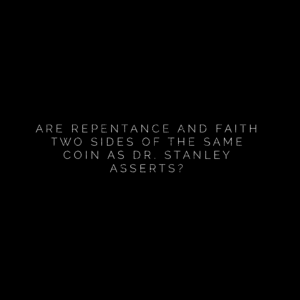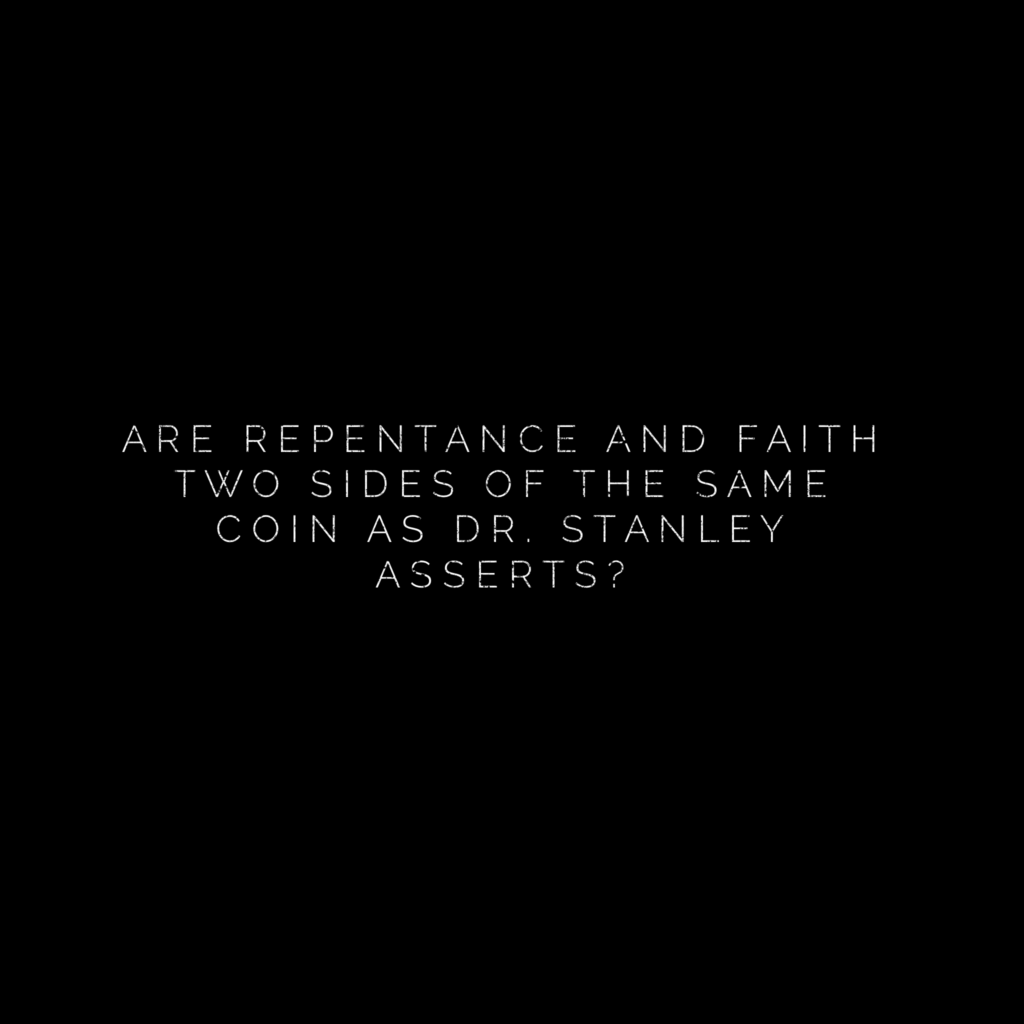By Bob Wilkin
A friend called me just before 10AM today: “You’ve got to listen to Dr. Charles Stanley on his broadcast today. I want your feedback.”
I was interested to learn that Dr. Stanley spoke on repentance, the subject of my doctoral dissertation. I found his comments to be confusing, to say the least. Worst yet, Dr. Stanley, long known as a champion of the grace of God (e.g., see his book Eternal Security: Can You Be Sure?), here advocates Lordship Salvation.
The message only lasts for 19 minutes. I recommend you listen to it and then come back to my review of it. (Charles Stanley’s message may be found here.) The numbers in parentheses below indicate the time in the message, minutes and seconds, where he said something.
Here is his thesis:
- To believe in Jesus (John 3:16; Eph 2:8-9; etc.) “involves and includes repentance” (9:15-10:10). He argues that the reason why repentance is not found in places like John’s Gospel is because the readers of John and the rest of the New Testament understood that whoever believes in Him means whoever believes in Him and repents of his sins (10:15-12:20).
- To repent is 1) to have “heartfelt sorrow for sin” and 2) to make “a commitment to forsake sin and to walk in obedience to Christ” (5:25-33).
- A person who truly believes and truly repents will live a changed life (8:40ff; 10:55ff.; 12:10ff; 14:28ff.). If a person’s life does not give evidence of change, then he is not yet born again. This was a major emphasis in his message. He argues that there is no assurance apart from clear evidence of a transformed life.
- While we must make a commitment to forsake our sin and to walk in obedience to Christ, we can’t clean up our own lives (13:45ff; 17:50ff.). It is the Holy Spirit who cleans up our lives and who changes our lives.
Aside from point four, Dr. Stanley lays out the message of Lordship Salvation. In fact, many who hold to Lordship Salvation even embrace what he is saying in point four.

His entire message is based on flawed understandings of words and of Scripture. I could write a whole book refuting what he says in this 19 minute message. But I will spare you and just give you a few key observations/refutations.
- The fact that repentance is not found in John’s Gospel, the only evangelistic book in Scripture (John 20:30-31) or in Paul’s letter to the Galatians, his defense of the gospel of grace (Gal 1:6-19; 2:16; 3:6-14), shows that repentance is not a condition of everlasting life. No first century reader of John or Galatians or the New Testament would have thought that.
- When Jesus spoke to a notoriously sinful woman (John 4), He did not once tell her that she needed to be sorry for her sin or that she had to turn from her sin or that she had to commit to obey Him. Instead, He simply called her to faith in Him. If Stanley is correct, then the Lord Jesus shared a false message with the woman at a well. In addition, the Apostle John fails to tell us if the woman stopped living in sin. If a changed life is guaranteed and required, then why do we not learn whether she repented or not?
- When Jesus asks Martha, “Do you believe this?” (John 11:26), He is not asking her if she has heartfelt sorrow for her sin or if she has made a commitment to forsake her sin and to walk in obedience. He is asking her if she is convinced that what He just said (John 11:25-26a) is true. Likewise, “whoever believes in Him” in John 3:16 refers to believing in Him for the everlasting life He promises, not to sorrow for sin or a commitment to turn from sin and to obey Christ.
- There is no guarantee in Scripture that a person who is born again will live a life that is so changed that anyone can see the transformation. The verse which Stanley cites, 2 Cor 5:17, does not say that if anyone is in Christ he is a new creation. The words “he is” are not in the Greek. The context suggests that Paul is saying “there is a new creation.” The “all things” that have changed are not the behavior of the believer, for that would mean sinless perfection, but a new world in which there are those who believe who have everlasting life and are our brothers and sisters and those who do not believe and who lack everlasting life and are not our spiritual brethren (see 2 Cor 5:16, 19-20).
- Stanley’s constant citing the need to have a changed life in order to be sure that you are born again actually makes certainty impossible. Unless sinless perfection is possible, and it is not (1 John 1:8, 10), then the lives of believers are imperfect. Assurance cannot be found in our works because our works are flawed. Stanley is basically moving his listeners toward despair, not toward assurance.
I love Dr. Stanley’s book Eternal Security and I’ve enjoyed his preaching over the years. Sadly, I did not enjoy his message on repentance today. Today Dr. Stanley missed the mark.




